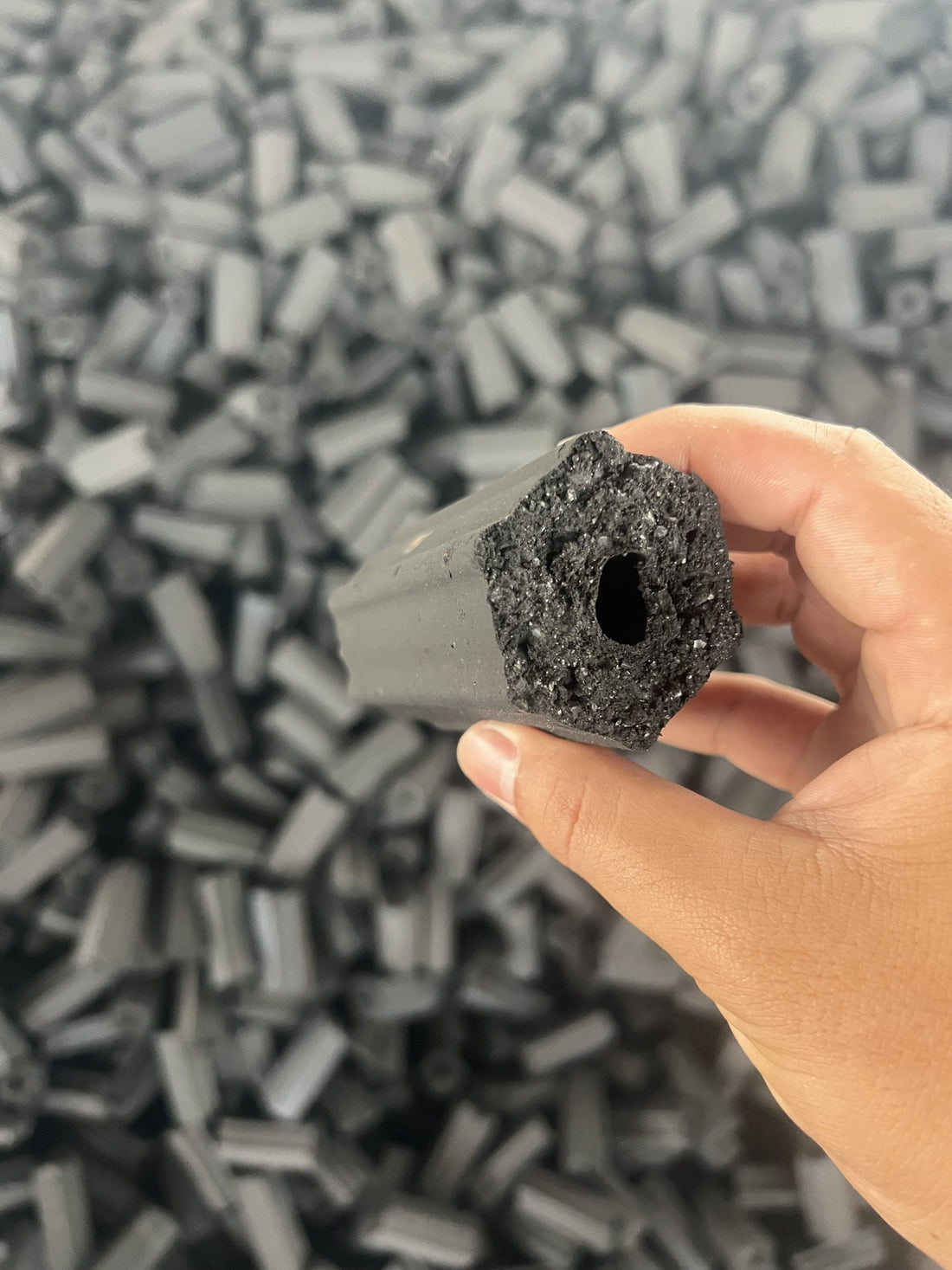
Embracing Sustainability: The Global Movement Towards Eco-Friendly Charcoal Solutions
Share
As the world grapples with environmental challenges and the urgent need for sustainable practices, the charcoal industry is undergoing a significant transformation. Traditional methods of charcoal production have long been associated with deforestation, carbon emissions, and negative ecological impacts. However, a global movement towards eco-friendly charcoal solutions is emerging, offering hope for a greener future. This article explores the advancements in sustainable charcoal production, the role of alternative materials like coconut shells, and how these changes are benefiting both the environment and communities worldwide.
The Environmental Impact of Traditional Charcoal Production
Deforestation and Habitat Loss
- Tree Cutting: Traditional charcoal production often involves the harvesting of hardwood trees, contributing to deforestation.
- Biodiversity Threats: Loss of forested areas leads to habitat destruction for countless species, disrupting ecosystems.
- Soil Degradation: Removal of trees results in soil erosion and decreased fertility, affecting agriculture and local livelihoods.
Carbon Emissions
- Greenhouse Gases: The carbonization process releases significant amounts of carbon dioxide and methane, potent greenhouse gases.
- Air Pollution: Inefficient burning methods produce smoke and particulates, affecting air quality and human health.
The Shift Towards Sustainable Charcoal
Alternative Raw Materials
-
Agricultural Waste
- Coconut Shells: Repurposing coconut shells into charcoal reduces waste and prevents the need for cutting down trees.
- Bamboo: Fast-growing and renewable, bamboo serves as an excellent source for sustainable charcoal.
- Sugarcane Bagasse: The fibrous residue from sugarcane processing can be converted into briquettes.
-
Biochar from Crop Residues
- Rice Husks and Corncobs: These materials are abundant and can be carbonized to produce biochar, enriching soil and sequestering carbon.
Improved Carbonization Techniques
-
Efficient Kilns
- Retort Kilns: Capture and recycle gases released during carbonization, reducing emissions.
- Metal Drum Kilns: Affordable and more efficient than traditional earth mounds, leading to better yield and less pollution.
-
Controlled Combustion
- Temperature Monitoring: Ensures optimal carbonization, improving charcoal quality and reducing smoke.
Certification and Standards
-
Sustainable Charcoal Initiatives
- Forest Stewardship Council (FSC): Certifies charcoal produced from responsibly managed forests.
- Fair Trade Certifications: Promote ethical labor practices and community benefits.
Case Studies: Sustainable Charcoal Around the World
1. Kenya: The Makala Project
- Community Engagement: Training local producers in sustainable practices and efficient kiln use.
- Reforestation Efforts: Planting fast-growing trees to replace those harvested.
- Economic Impact: Increased income for producers through access to new markets.
2. Brazil: Sustainable Eucalyptus Plantations
- Managed Forests: Eucalyptus trees are cultivated specifically for charcoal, reducing pressure on native forests.
- Technological Advancements: Use of modern kilns reduces emissions and improves efficiency.
3. Thailand: Coconut Shell Charcoal Production
- Waste Utilization: Transforming coconut shells into high-quality charcoal supports waste reduction.
- Community Development: Provides jobs and income for rural communities, as seen in the Pak Tho district.
- Environmental Benefits: Reduces reliance on wood charcoal, helping to preserve forests.
The Role of Coconut Shell Charcoal in Sustainability
Environmental Advantages
- Renewable Resource: Coconuts are harvested regularly, providing a steady supply of shells without additional environmental impact.
- Waste Reduction: Utilizing shells that would otherwise be discarded minimizes landfill use and methane emissions.
- Low Emissions: Coconut shell charcoal burns cleaner, producing less smoke and pollutants.
Economic and Social Benefits
- Community Empowerment: Creates employment opportunities and supports local economies.
- Affordable Energy Source: Provides an accessible and cost-effective fuel option for households and businesses.
- Educational Opportunities: Profits can be reinvested into community education and training programs.
Technological Innovations in Charcoal Production
Carbonization Enhancements
- Pyrolysis Technology: Advanced methods that convert biomass into charcoal with higher efficiency and lower emissions.
- Biochar Production: Producing biochar for agricultural use enhances soil fertility and sequesters carbon.
Renewable Energy Integration
- Solar Drying: Using solar energy to dry biomass before carbonization reduces energy consumption.
- Energy Recovery Systems: Capturing heat and gases from the carbonization process to generate electricity or heat.
Policy and Regulatory Support
Government Initiatives
- Subsidies and Incentives: Financial support for producers adopting sustainable practices.
- Regulation Enforcement: Implementing laws against illegal logging and unsustainable charcoal production.
International Collaboration
-
United Nations Sustainable Development Goals (SDGs)
- SDG 7: Ensure access to affordable, reliable, sustainable, and modern energy.
- SDG 13: Take urgent action to combat climate change and its impacts.
- SDG 15: Protect, restore, and promote sustainable use of terrestrial ecosystems.
-
Global Partnerships: Organizations working together to promote sustainable energy solutions.
Consumer Responsibility and Choices
Demand for Sustainable Products
- Market Influence: Consumer preference for eco-friendly products drives producers to adopt sustainable methods.
- Certification Awareness: Choosing certified charcoal supports responsible producers.
Education and Advocacy
- Spreading Awareness: Educating others about the benefits of sustainable charcoal.
- Supporting Local Initiatives: Engaging with community projects and advocating for policy changes.
Conclusion: A Collective Effort Towards a Greener Future
The global shift towards sustainable charcoal solutions reflects a growing recognition of our collective responsibility to protect the environment. By embracing alternative raw materials like coconut shells, adopting efficient production technologies, and supporting policies that promote sustainability, we can significantly reduce the ecological footprint of charcoal production.
Communities around the world, from the forests of Japan to the coconut groves of Thailand, are demonstrating that it's possible to balance economic needs with environmental stewardship. Consumers play a crucial role in this transformation by choosing eco-friendly products and advocating for sustainable practices.
Together, we can foster a charcoal industry that not only meets our energy needs but also contributes positively to the health of our planet and the well-being of communities.
Join us in embracing sustainable charcoal solutions. Explore our range of eco-friendly coconut shell charcoal products and be a part of the global movement towards a greener future.
Paul Park
